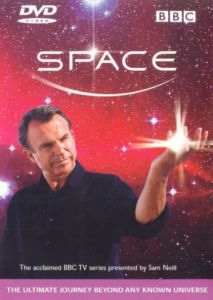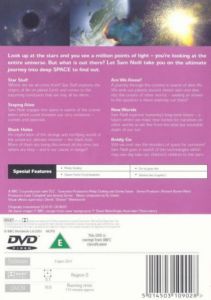| Plot |
| Space is a visually impressive six-part popular science series from the BBC that follows their runaway successes Walking with Dinosaurs and The Planets into the realm of lavish computer animation. In a stroke of inspired casting Jurassic Park's Sam Neill (no stranger to acting alongside CGI effects) is our earthbound anchor, and he takes the viewer on journeys across the universe in each half-hour segment, thanks to some nifty special effects. Like Carl Sagan's pioneering Cosmos from 1980, Space delves in to the mysteries of how stars and planets were created; but unlike Sagan's visionary and optimistic view of cosmic wonders, Space is astronomy for the Age of Anxiety, revealing with terrifying clarity and in graphic detail how fortunate we are to exist at all, and how it could all end at any moment as a result of space-bound monsters like rogue comets and asteroids that might crash into our planet; or, the worst horror of the universe, wandering black holes that could tear our sun apart. Even if we survive these implacable cosmic forces bent on our destruction, viewers will not be reassured to be told that the sun is doomed anyway, and its inevitable death will swallow our planet whole (but not before burning it to a crisp first). Finally, the series finds cause for faint optimism with Star Trek-style speculations on the development of Ion-drive and solar-powered spaceships, terraforming new worlds and wormhole technology that might, just might, allow humanity to escape from a doomed Earth and seek refuge somewhere else in the galaxy. A series that sheds light on both the secrets of the universe and, implicitly, the anxious state of our new millennial society, Space is a compelling combination of popular astronomy and really, really scary cosmology. The handsomely illustrated companion book is lucidly written by astronomer John Gribbin. --Mark Walker |
|

